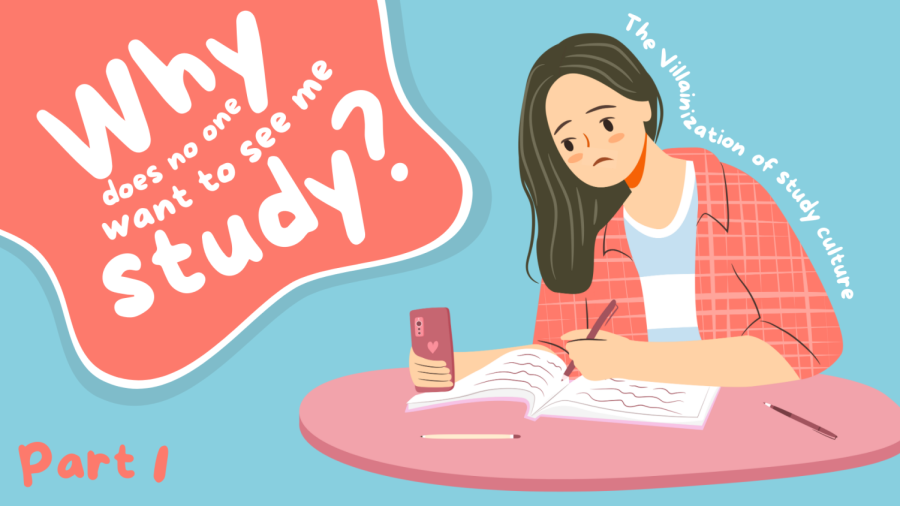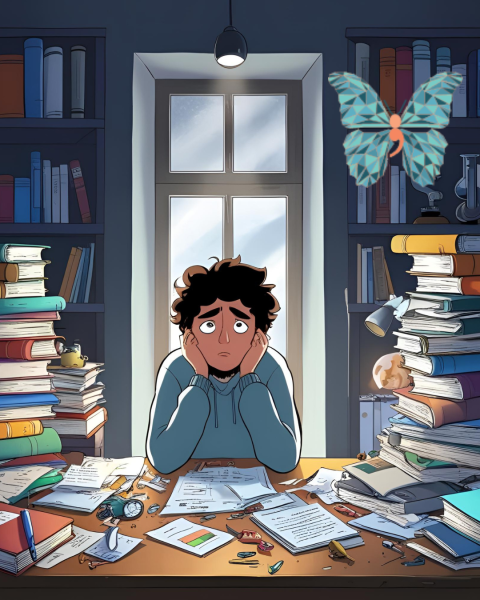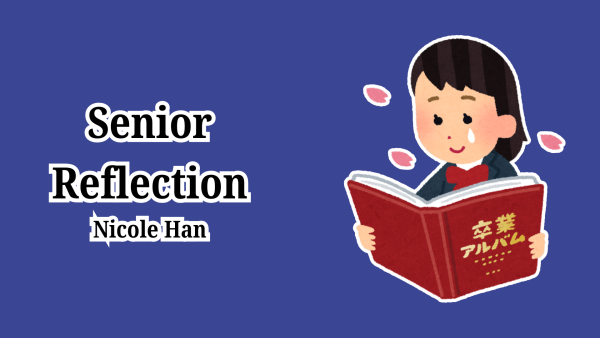Why does no one want to see me study? Part 1: Villainization of Study Culture
Senior AJ Gordon shares how throughout her high school career, she feels that it’s almost been discouraged for her to study.
This year to battle an immense workload, I’ve gotten into the habit of going to a cafe or library and studying alone for up to eight hours at a time.
I will not claim to love studying, but in some way I’ve come to look forward to my study sessions. I enjoy the setting of a library or cafe, I enjoy having some time alone outside of my house, especially after a day packed with classes or social activities, and I like having uninterrupted time to learn new concepts at the pace I need.
Many people I talk to, on the other hand, seem to hate the fact that I study for that long. They disapprove of my routine and appear almost guilty by association for allowing a teenager to dedicate that much time to school on a daily basis.
They do not, however, disapprove of the grades I receive, the extracurricular activities I’m passionate about, nor the college acceptances and scholarships I’ve received in the past few months.
While I touched on this in my article on student burnout last year, I’ve thought a lot more about what cultural factors play into this phenomenon. Additionally, I’ve found that one of the best ways to battle student burnout has been to… study more?
This will be a two-part article — the first focusing on the cultural disapproval of long hours of studying and the second on how the element of solitude, which is often helpful in studying, is being pushed out of our idea of learning.
A huge part of what I think plays into this is a sort of villainization of study culture; the idea of dedicating one’s life to studying. You see it often in the way that Asian study culture is reprimanded by the American public. I myself have received comments making assumptions about my Asian mom’s “helicopter” parenting (that doesn’t exist) and how that contributes to my desire to work hard. Asian students who spend their time studying are seen as caged animals in need of freeing, enslaved to parental or internal pressures to succeed.
In some cases, this is true. There are many toxic examples of Asian study culture having detrimental effects on students’ mental health. Yet, in the overall mindset of Asian study culture, there remains a correlation between hard work and prosperity that has been lost in American approaches to success.
As stated in Malcolm Gladwell’s book Outliers, this stereotype of Asian students studying stems back to the agricultural practices of rice farming. Gladwell states, “Rice farming is the most labor-intensive form of agriculture known to man. It is also the most cognitively demanding form of agriculture…There is a direct correlation between effort and reward. You get exactly out of your rice paddy what you put into it.” Gladwell hypothesizes that this translates well into the subject of math, a subject Asian students are notoriously better at other students.
In Asian study culture, it remains true that hard work and success work in tandem. Asian parents expect students to succeed because they expect their kids to work hard. Though the expectations are extreme, they are based on their extreme expectations of their kid’s discipline.
In western culture, we continue to praise the high achievers, successful, and “self-made” image without condoning the sacrifices needed to get there. We imagine that all can be achieved while maintaining the same hours of sleep, social life, free time, etc.
I agree that Asian study culture should be criticized for its sometimes damaging effect on familial relationships and students’ mental health and self-esteem. But we cannot offer up our current western perspective as the solution.
While the stereotypical Asian career and academic standards offer no room for varying passions and talents, our idealized notion of balance and being able to juggle many obligations does not acknowledge what is required of our own goals.
Your donation will support the student journalists of Watkins Mill High School. Your contribution will allow us to purchase equipment and cover our annual website hosting costs.

Andrea “AJ” Gordon is a senior at Watkins Mill High School and Opinion Managing Editor for The Current. She is an IB Diploma student and is a part...













